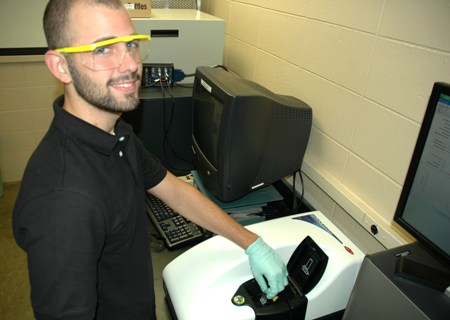The Lewis University in Illinois and Pall, a provider of filtration, separation and purification solutions for fluid management in life sciences had recently conducted a research study on the filtration science of nanoparticles.
Pall is to present the study results at the International Conference on Planarization/CMP Technology (ICPT) to be held in Seoul, Korea, from 9 to 11 November.
 Abrasive Nanoparticle/Filter Media Interactions study
Abrasive Nanoparticle/Filter Media Interactions study
Pall sponsored the study on Abrasive Nanoparticle/Filter Media Interactions, which was conducted by Lewis University alumnus Vince Schade and Dr. Jason Keleher, assistant professor of chemistry. During the manufacture of semiconductors, any reduction of defects in wafers can help lower the manufacturing costs and also increase the process yields. The findings from the study will help reduce potential defects and ensure product quality through customized product solutions for CMP technology applications.
The ICPT conference is a forum for engineers, industrial practitioners and researchers to exchange information about research in chemical mechanical planarization (CMP) technology. The senior corporate vice president at Pall Microelectronics, Steve Chisolm, stated that the expertise and knowledge of CMP and nanotechnology of the Lewis University’s Chemistry department motivated its decision for the collaborative study.
The company’s technology development process for advancing its filtration solutions for microelectronics includes collaborations with researchers and educators, he added. Dr. Keleher stated that the collaborative study on interactions between filter media and nanoparticles was an example of student-industry partnership.
Pall’s CMP product manager, Patrick Levy, is to present the study findings at the ICPT conference.